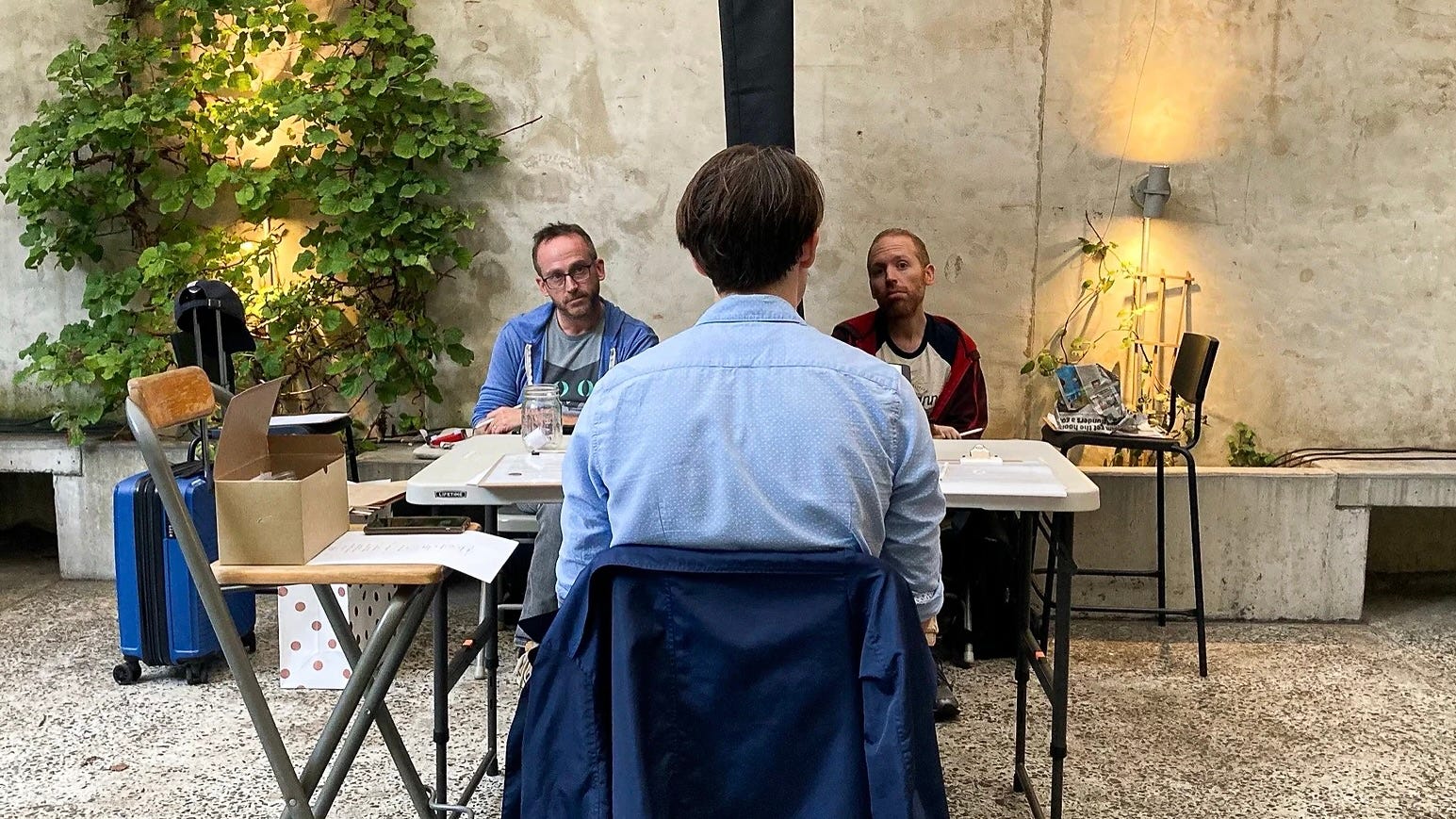Fair Trade (Capsule Review)


[Original publication: No Proscenium, 5/9/23]
It could have been a lunch hour. We were sitting in a park on the San Diego Bay. Spandexed runners blew by. The show was only an hour long, but there was no lunch. Instead, we had an existential investigation of fairness.
Get Laura Hess’s stories in your inbox
Join Medium for free to get updates from this writer.
SubscribeSubscribe
Fair Trade is described as “a game and immersive experience focused on personal and communal transformation through play.” Two strangers converge on opposite sides of a curtain. Each participant brings three objects for a potential trade (with varying degrees of attachment to those offerings). Sitting within their view is a facilitator (usually performed by creators Jessica Creane or Yannick Trapman-O’Brien), who guides them through negotiations with care, humor, and vulnerability.
Wonder and awe often arrive from big spectacle, be it human made or the natural world. Fair Trade takes a different approach. Although “personal and communal transformation” sounds — and is — lofty, “small” encounters like these have intimate fulcrums. In place of spectacle is a gentle, incremental unfolding. Through a nuanced mix of proposition and choice, the facilitator accompanies participants as they examine fairness, a concept that seems as fundamental as breathing.
With The Telelibrary, an earlier work by Trapman-O’Brien (still running after more than 1,500 performances), he cultivates a specific kind of anonymous intimacy, one where solitude is a path to connection, both to others and to oneself. With Fair Trade, Creane and Trapman-O’Brien designed a new container for anonymous, cooperative dialogue. Through this shared exploration, internal truths and deep uncertainties reveal themselves. Instead of solitude as a path to connection, it’s communion as a path to introspection.
Ignited by the game’s exchanges, Fair Trade becomes a space to contend with, for, and even “against” oneself. Internal debate is concurrent with external negotiation. The production centers an idea that embodies incredible tension: one we take for granted and one that can erupt with volatility. The resulting distillation of what fairness could be and how we evaluate it feels fresh and life-affirming. Through their individual practices and now as a team, Creane and Trapman-O’Brien are fluent operators. They navigate the tenuous threads of humanity with such grace and artistry that, in the end, a part of yourself is revealed; something that may have felt unknowable, even to you, rises to the surface to be seen and given away.